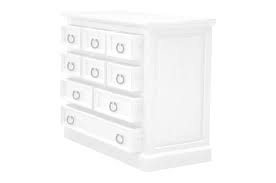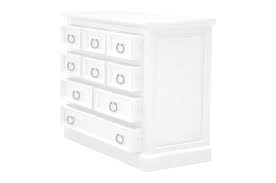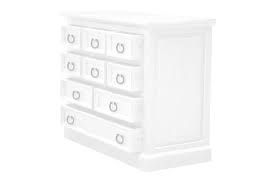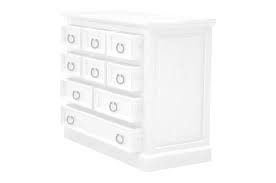Alcohol calms the central nervous system down and is often used by people to relieve stress. If you’ve ever wondered “is alcohol a stimulant or a depressant?” the answer is alcohol is a little bit of both.
The first thing alcohol depresses are our frontal lobes, where our inhibitions live, so initially and in low doses alcohol disinhibits making people more likely to socialize, dance or whatever.

Is alcohol a stimulant depressant or hallucinogen. However, while it has some stimulant effects — particularly in low doses — alcohol is mainly a depressant substance. In this chapter we review studies that describe and attempt to measure various aspects of alcohol's subjective, autonomic, motor, cognitive and behavioral effects from the perspective of stimulation and sedation. Cannabis is complex chemically and not yet fully understood, but it is scientifically not a narcotic.
The body’s primary circadian pacemaker is the: Alcohol produces both stimulant and sedating effects in humans. Alcohol is a tricky substance.
Alcohol is a colorless,odorless,volatile pungent drug that acts as a: The effects of alcohol can vary wildly from person to person. Although clinically categorized as a depressant, the amount of alcohol consumed and a person’s individual reaction determines the type of effect he or she will experience.
It slows down your brain’s ability to function and its neurological activities. A.) hallucinogen b.) depressant c.) stimulant d.) narcotic Which of the following is not a factor that affects absorption rate?
After people have their first beer, they tend to feel better. Some get energized and rowdy while others become weepy or aggressive. However, in higher doses its effects are depressant, making people sleepy and ultimately can cause coma and death.
Alcohol is (a) a stimulant, not a depressant (b) a hallucinogen (c) an inhibitor, not a relaxant (d) a depressant, not a stimulant Brainly user brainly user 06/18/2020 health middle school answered alcohol is what type of psychoactive drug? Alcohol is a colorless odorless drug that acts as a alcohol is a colorless, odorless, volatile, pungent drug that acts as a_____.
Alcohol use increases the availability of gaba and decreases the functioning of nmda. Alcohol, depending on the level consumed and a person’s individual reaction, can cause both sedating and stimulating effects. By signing up, you'll get thousands of.
In others, it can actually cause anxiety over time. What did freud regard as the primary function of dreams? Alcohol is actually a depressant.
However, clarity comes with the crash. Most people drink for the initial stimulant effect, to “loosen up” and reduce social inhibitions. Alcohol has an initial stimulant effect in lower doses.
Narcotic 2 see answers kaydiherrell kaydiherrell answer: Depressant as caffeine is to stimulant. • alcohol content of the drink • speed of drinking • individual metabolism • personal tolerance * 5.
Depressants have effects such as slowing reaction time, poor concentration, and visual disturbances. How many ounces is one serving of hard alcohol. Alcohol is technically categorized as a central nervous system (cns) depressant, but the answer is a little bit more complicated than that.
These two seemingly opposite effects are central to the understanding of much of the literature on alcohol use and misuse. At this point, it becomes clear why alcohol is a depressant; Caffeine is to _____ as alcohol is to _____.
Alcohol is classified as a(n) a. • stimulant • depressant * • hallucinogen • antihistamine 4. However, if a person consumes more than the body can handle or has a.
Narcotic get the answers you need, now! Because alcohol slows reaction time, it is important that you avoid driving after you have consumed alcohol. To a certain extent, it may boost your energy levels or moods.
Alcohol encompasses both stimulating and sedative effects. The difference between stimulants and depressants Alcohol (ethanol) is classified as a central nervous system (cns) depressant meaning that it reduces activity in the cns and eventually can induce effects such as profoundly depressed respiration and low body temperature.
Most people believe alcohol is a stimulant because of its euphoric effects, and there’s good reason behind it. By contrast, alcohol is a central nervous system depressant drug that is believed to have its primary effects on the inhibitory neurotransmitter gaba (gamma aminobutyric acid) and the excitatory neurotransmitter nmda. On these occasions, it feels as if alcohol is a stimulant.
Alcohol does have some stimulating properties, however, due to its ability to increase dopamine in the brain. It is neither a stimulant nor a hallucinogen in most people.

Instant Cordyceps herbal drink mix for energy boost and

What Fills The World's Cups Digg Absinthe, World cup

The Eyes can be effective indicators of drug or alcohol

Although coffee’s caffeine content makes it a stimulant

What Are the ShortTerm Effects of Hallucinogens?

32 Surprising Things That Ruin Your Skin Food trends

Pin on Cigarettes News and Facts

Pin by Sue Caborej on Vintage Drug Store Collectibles

Take me, I am hallucinogenic. Salvador Dali Quote. Mug

Bach Flower Remedies Rescue Energy 0.245 Fl Oz Bach

Tono Sumbul Cordial. A superb tonic and heart stimulant

Herbal Stimulant in 2020 Espresso martini, Herbalism










